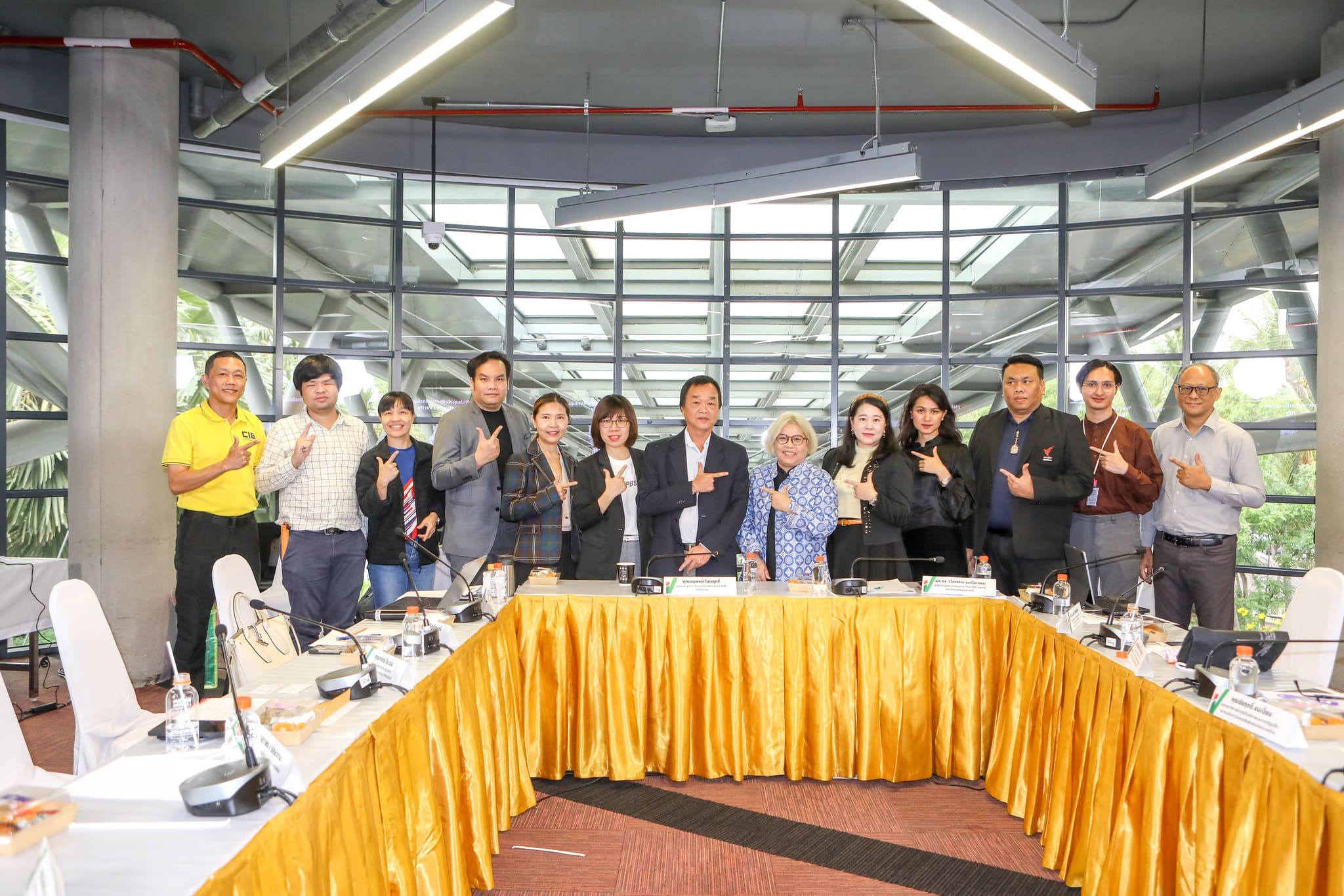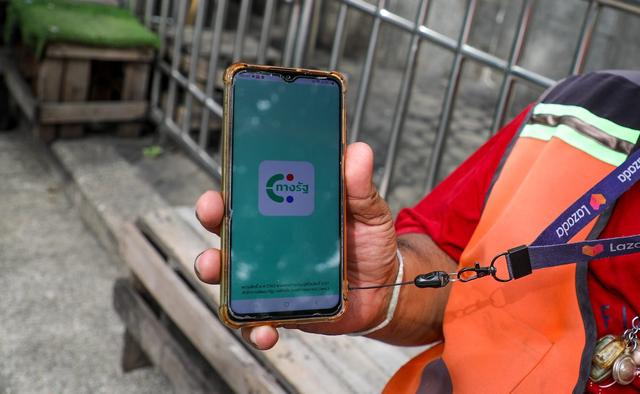Thai PBS organized a Focus Group activity to gather opinions from academics, experts, media, and consumer service agencies to develop the Thai PBS Verify platform — a tool for verifying fake news and filtering real news. Thai PBS Verify conducted special interviews about the current situation of scammers and fake news, as well as the significance of the fact-checking process in building media literacy and strengthening society’s immunity against misinformation.

The Current Situation of Scammers
Police Colonel Neti Wongkulab, Deputy Commander of the Technology Crime Suppression Division, Central Investigation Bureau (CIB), revealed the current methods used by scammers to deceive their victims, stating that:

These criminal networks tend to deceive victims by following current trends. From a previous arrest of a scam gang — in which the authorities also apprehended the group’s programmer — it was found that their fraudulent activities take many forms and are organized in a manner like that of a legitimate company. For example, when a well-known company prepares to enter the stock market — call center gangs will immediately launch fake advertisements luring people to reserve shares. Their methods of deception therefore evolve according to the latest trends. However, a common feature is the promise of high returns usually used as bait — such as offering profits of 10–20% or more.
Are Fuel and Power Cut Measures the Right Solutions?
Pol. Col. Nethi also discussed operations to crack down on criminal activities in neighboring countries, addressing the question of how much these efforts can reduce the number of call center gangs that commit crimes against people in Thailand.

Pol. Col. Nethi stated that the recent crackdowns are expected to reduce the number of victims in Thailand. This is because of the “cutting off power and fuel” measures targeting criminal bases in neighboring countries. Over the past month, there has been movement of people crossing from neighboring nations into Thailand; however, authorities are still in the process of screening them to determine who are actual victims and who are members of the call center gangs. He emphasized that the measures implemented have been as comprehensive as possible and are already showing results. Still, other efforts must continue simultaneously — such as the suppression of illegal SIM cards (“ghost SIMs”) and mule accounts (“horse accounts”). Therefore, he believes that the current strategies are on the right track and that the situation should gradually improve.
In 2025, the Central Investigation Bureau (CIB) has also engaged in operations both in Singapore and Thailand to strengthen collaboration with various online platforms. A proactive blocking team, or “online patrol unit,” has been established to actively search for fake pages from morning to evening. These pages are then reported to platform providers for immediate shutdown. This proactive approach is emphasized to quickly close off channels of deception. On the reactive side, when a complaint is received, and the victim does not provide the URL of the fraudulent site, officers will contact the person directly to obtain it so that the page can be blocked.
The most important way to avoid becoming a victim, Pol. Col. Nethi added, is to start with self-awareness before any loss occurs. Nowadays, it is encouraging to see people warning one another online, as this helps spread awareness and strengthens public knowledge.
168 million times — the number of scam calls targeting Thais in 2024.

Mr. Kodchasorn Jaijam, Chief Operating Officer of Gogolook Thailand (Whoscall), revealed the company’s 2025 annual report, which draws on data from 25 million users in Thailand. The report found that the number of reported scam phone numbers and SMS messages has continued to rise every year.
In 2024, there were 168 million alerts related to scam SMS and phone numbers — marking the highest growth in the past five years, since Whoscall began collecting statistics in 2020. The data was gathered directly from Whoscall users; therefore, as the user base grows, the clarity of the statistics also improves.
Currently, Whoscall has 25 million users in Thailand, which accounts for about one-fourth of the country’s population of 70 million. This allows for a clearer picture of the problem’s scale. Whoscall plans to present these figures to relevant agencies to foster cooperation in further prevention and suppression efforts.


According to current data, online shopping scams are the most common form of fraud used by scammers, followed by investment scams. This finding aligns with statistics from the Royal Thai Police, which show similar trends. It was also found that the personal information used by scammers to trick victims has become increasingly detailed — including ID card numbers, full names, land title deed numbers as well as the use of AI-generated content.
Surveys further reveal that the duration of scam operations has become shorter while scammers need not spend time collecting personal data of victims like before.
People with Disabilities Among Scam Victims
Mr. Wasan Paengpuanju, founder and CEO of Friendly Dev Co., Ltd., discussed the situation regarding online scams targeting people with disabilities, noting that this group has access to information comparable to the general people. Online fraud affecting people with disabilities appears in many forms and has similar impacts to non-disabled individuals. However, financial losses tend to be lower, largely because people with disabilities often face obstacles in conducting online transactions — for example, facial recognition for money transfers, which many cannot do successfully.
These barriers reduce their exposure to some types of online fraud. Still, the most common scams targeting people with disabilities involve online shopping, where victims are tricked into purchasing fake or misleading products.

Insufficient access to tools and information for people with disabilities.
There are very few fact-checking websites accessible to people with disabilities. Platforms should be developed in line with accessibility standards so everyone can use and benefit from them. Content should include image descriptions, video narration, and sign language for people with hearing impairments.
Independent media believe that fact-checking is an important issue for Thai media.

Ms. Wasinee Phubuprapap, an independent journalist, shared her views on fact-checking, stating that the most important part of verifying information is identifying the source of the news first, for example, by asking the source where the information came from. She emphasized the need to consult more than two sources, checking whether these sources come from the same origin, and trying to gather as many perspectives as possible to determine who is the best to answer questions. One of the most critical aspects of media fact-checking is accuracy, which is the basic responsibility of the media before presenting information.
She also commented on the current state of fact-checking in Thai media, noting that although there are comprehensive verification processes, limitations still exist. Media face a large volume of issues each day, so fact-checking is often done under time constraints. Even with knowledge, skills, and expertise, journalists cannot fully focus on every item.
She noted that fact-checking is often seen as secondary in newsrooms. Drawing from her political reporting background, she observed that seemingly credible stories are often treated like a “game,” entertaining audiences but misleading those who believe them. Without fact-checkers, such stories can lead to debates based on differing perceptions of the truth. Therefore, even though fact-checking may be secondary, it remains very important.
She further noted that weakness in media fact-checking is not necessarily the fault of the media themselves, but rather the issue of audience trust. There are multiple news outlets, each positioning itself differently. If audiences do not trust a particular outlet, even fact-checked content may be ignored. Consequently, creating institutions or processes that are sufficiently credible for fact-checking is itself a very important step.
The rise of AI has made fact-checking even more challenging.

Upon the arrival of AI and fake news, the development of technology — particularly the emergence of artificial intelligence — has made it increasingly difficult to distinguish truth from deception.
In the past, verifying the truth could be done by checking original video clips or other tangible evidence. However, with the rise of AI, even the images or videos used for verification can now be artificially generated or manipulated, making it far harder to confirm authenticity.
As a result, the fact-checking process now requires more advanced verification methods and has become significantly more demanding than in the past.






